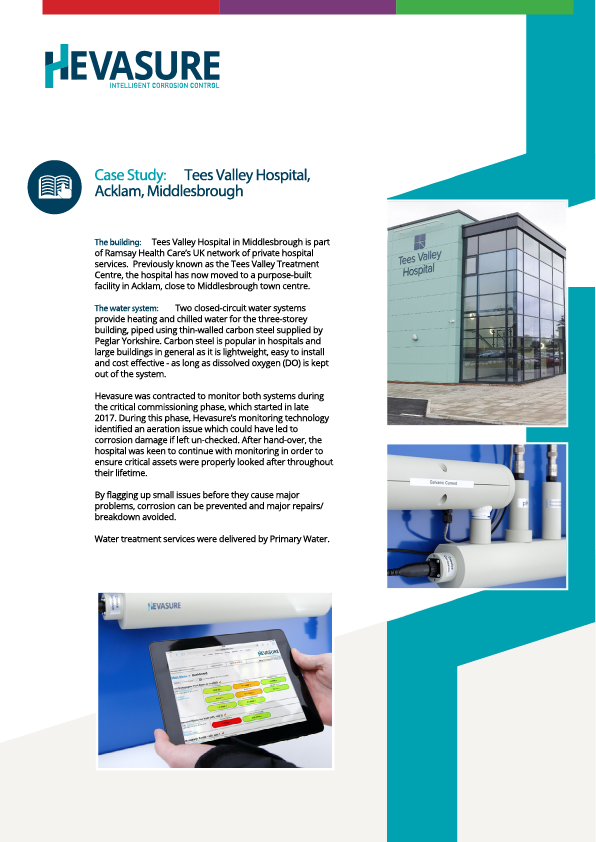Case study. Tees Valley hospital - preventing water system breakdown in hospitals
At Tees Valley Hospital in Middlesborough, Hevasure’s water monitoring technology has been used to identify aeration issues during the critical commissioning phase and is now providing continual data to ensure essential CHW and LTHW systems are properly looked after and remain operational. Downtime in the healthcare environment is extremely disruptive and potentially dangerous for patients.
Like many hospitals and large buildings in general, thin-walled carbon steel was used for the pipework as it is lightweight, easy to install and cost effective. What’s crucial is that dissolved oxygen (DO) is kept out of the systems in order to prevent corrosion. Hevasure’s technology is ideal for carbon steel systems as it detects for DO (something sampling cannot do) and flags up changes in condition immediately, allowing small issues to be dealt with before they become big problems.
Early on during the pre-commissioning cleaning of the chilled water system, following flushing and filling activities, it became clear that DO was taking too long to return to acceptable levels. With excessive oxygen in the pipework, corrosion risk was greatly exacerbated.
Following the identification of this issue, Hevasure advised the installation of a vacuum degasser; a solution which had an immediate and dramatic effect, returning oxygen levels to acceptable and stable levels within days of installation.
If sampling had been the sole method of checking system condition during pre-commissioning cleaning, the oxygen issue would not have been picked up in time, meaning the water system would have started life in a compromised position, potentially leading to problems further down the line.
After handover, monitoring ensures that corrosion is continually kept at bay. Apart from DO, Hevasure monitors a range of parameters, including pressure, pH, corrosion rates, inhibitor levels and conductivity; all potential indicators of problems within a system. When changes occur, alerts are sent direct to responsible parties which means they can be acted on immediately.
“The Hevasure technology has undoubtedly prevented serious problems occurring in the heating and chilled water systems at Tees Valley hospital by the early identification of adverse issues such as gross aeration and loss of inhibitor.” Martin Williams, Director of WW Medical facilities.




